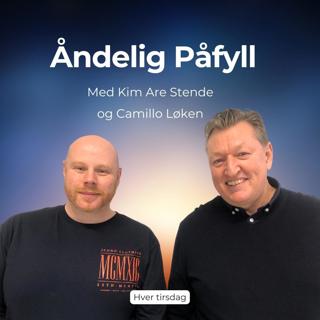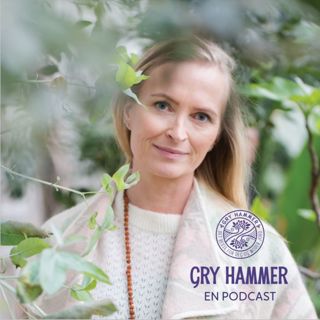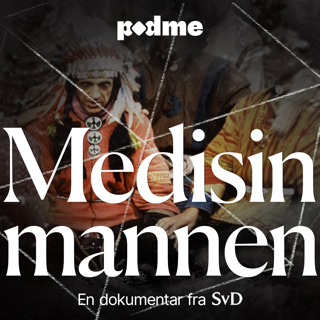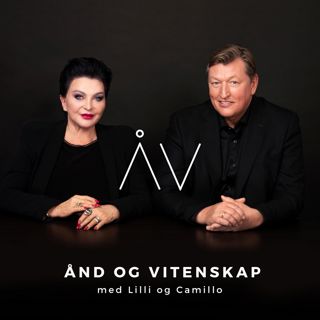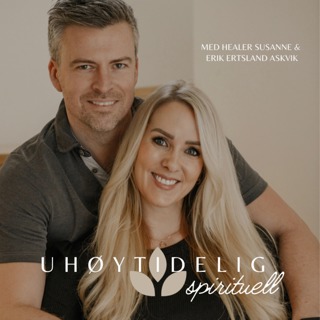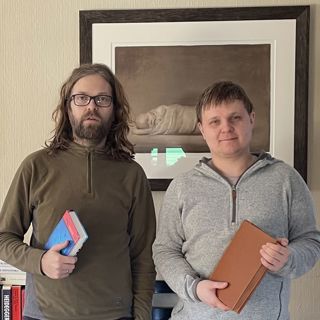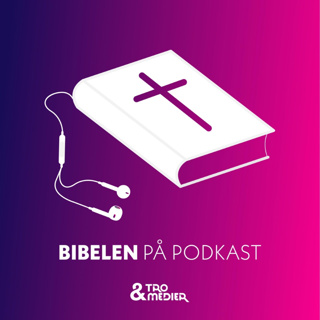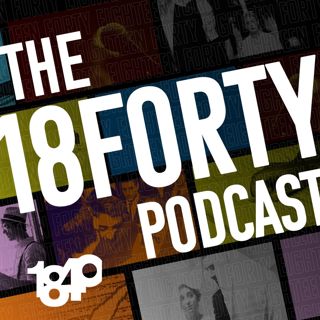
Michael Eisenberg: What’s Next: The Civic Revolution in Israel
In this episode of the 18Forty Podcast, we talk to Michael Eisenberg, a venture capitalist and staunch defender of Israel, about how the people of Israel have risen to the occasion by creating a “civic revolution.”With all that is at stake for the Jewish People right now, we’ve been forced to reconsider what our personal goals and collective mission ought to be. And Michael has been at the forefront of that discourse. In this episode we discuss:How does service in the IDF empower Israeli citizens at a young age?What is the current raison d'être of the Jewish People?What is Michael’s notion of “covenantal capitalism”?Tune in to hear a conversation about how, together, we summon the agency to transform our lives and uplift the world. Interview begins at 4:35.Michael Eisenberg is a General Partner at Aleph, an early-stage venture capital fund with $850M under management. Since 2006, he has been writing the blog “Six Kids and a Full Time Job,” on topics ranging from politics to technology, Judaism, and macroeconomics. Michael has also published numerous books, including The Tree of Life and Prosperity, The Vanishing Jew, and Ben Barukh. In 2020, he established the Nevo Network, a first-of-its-kind fellowship program to elevate olim (immigrants to Israel) working in high-tech and serves as the organization’s chairman. Michael lives in Jerusalem with his wife and eight children.References:“Israel, Version 3.0” by Rabbi Moshe TaraginMichael Eisenberg and Elon Musk on X (Twitter)Altneuland: The Old-New-Land by Theodor Herzl “Transactional thinking can only take humanity so far” by Michael EisenbergParshat ShoftimRange: Why Generalists Triumph in a Specialized World by David Epstein Red Notice by Bill Browder Halakhic Man by Rabbi Joseph B. Soloveitchik Sotah 49bReading Jewish History in the Parsha with David BashevkinBook Journey with Malka SimkovichBecome a supporter of this podcast: https://www.spreaker.com/podcast/18forty-podcast--4344730/support.
12 Des 20231h 9min

Noa Lewis: How Can We Help Israel? Finding Our Purpose
In this episode of the 18Forty Podcast, we talk to Noa Lewis, CEO of Echad and a volunteer with the IDF’s women’s casualty-treatment unit, about the sense of purpose it takes to unify the Jewish People with the Land of Israel. In dire times, we are compelled to move collectively closer to fulfilling the redemptive vision of every Jew living up to their ultimate mission. And Noa, with all of the work she does for the Jewish nation, is the perfect inspiration for us to look toward. In this episode we discuss:What makes someone feel called to do the holy work of caring for the dead bodies of Chayalim?What has been the atmosphere of everyday life in Israel during the war?What does it mean to live a purpose-driven life?Tune in to hear a conversation about how we can use our ordinary human bodies to carry out the extraordinary responsibility of being a part of Am Yisroel. Interview begins at 10:45.Born in Jerusalem and having lived in the Ukraine and Australia, Noa is the founder and CEO of ECHAD and the director of OLAH, a program that brings European Jewish women together for learning, community involvement, and entrepreneurship. Noa has founded and managed a youth program in the Ukraine, opened and managed a women’s Jewish learning center in Australia and initiated many community activities including international group tours to Israel and has project managed many community events. Noa has a wealth of experience initiating and developing community projects connecting different Jewish communities around the world and is an active volunteer in a unit for emergency services.References:Parshat KorachGenesis 22:19Isaiah 60:21Become a supporter of this podcast: https://www.spreaker.com/podcast/18forty-podcast--4344730/support.
5 Des 202352min

The Opportunity and Difficulty of Unity: On the Israel March
In this episode of the 18Forty Podcast, we talk to Eric Fingerhut—president and CEO of the Jewish Federations of North America—and Rabbi Aaron Rakeffet-Rothkoff, a scholar and professor at Yeshiva University, about the need for Jewish unity and the barriers to achieving it.In recent weeks, the Jewish community has been confronted with questions of collective Jewish existence in a way we haven’t seen in decades. In response, the Jewish world has had to join together with an achdus we previously weren’t even sure was possible. In this episode we discuss:What went into planning the historic and enormous March for Israel?What are the opportunities and challenges for Jewish unity in times of crisis?What can the current movement for Jewish solidarity learn from past moments from American and Jewish history? Tune in to hear a conversation about mobilizing a people known for its proclivity for disagreement. Interview with Eric Fingerhut begins at 7:26.Interview with Rabbi Rakeffet begins at 56:31Eric Fingerhut is the President and CEO of The Jewish Federations of North America. Prior to his appointment at JFNA, Fingerhut served as the President and CEO of Hillel International from 2013-19. He was an Ohio state senator from 1997 to 2006, and he represented Ohio’s 19th congressional district in the U.S. Congress from 1993 to 1994. Rabbi Dr. Aaron Rakeffet-Rothkoff is a renowned scholar, historian, author, and teacher, and he is currently professor of rabbinic literature at Yeshiva University’s Caroline and Joseph S. Gruss Institute in Jerusalem. Rabbi Rakeffet has written many entries for Encyclopedia Judaica, including the one on Rabbi Joseph B. Soloveitchik. Rabbi Rakeffet served in the Israel Defense Forces until the maximum allowable age, and served in Lebanon during the 1982 Lebanon War. In 1980, he was recruited by Aryeh Kroll to join Mossad's clandestine Nativ operation to teach Torah in the Soviet Union.References:The Glue, with Eric FingerhutIsrael: A Concise History of a Nation Reborn by Daniel Gordis Like Dreamers: The Story of the Israeli Paratroopers Who Reunited Jerusalem and Divided a Nation by Yossi Klein Halevi“Rabbinic Authority and Leadership On the Contemporary Scene” by Aaron Rakeffet-RothkoffTaanit 20a“Crisis Management” by David Bashevkin“Rafael Halperin”Become a supporter of this podcast: https://www.spreaker.com/podcast/18forty-podcast--4344730/support.
28 Nov 20231h 35min

Doron Perez: Our Heart: One Child Married, One Child Missing
In this episode of the 18Forty Podcast, we talk to Rabbi Doron Perez, executive chairman of the Mizrachi World Movement, about the sacrifices the Jewish People must make to preserve the precious gift of the State of Israel. In a single day, Rabbi Doron Perez found out that his son Yonatan had been shot and injured in the Oct. 7 Hamas terror attacks—and his other son, Daniel, was “missing in action” and presumably held hostage. Only 10 days later, the family went on to hold Yonatan’s wedding, with Daniel’s status still completely unknown. In this episode we discuss:What is the experience of a parent with a child who is held hostage?How does family life go on when a child is missing?What is the role of joy in a time of tragedy?Tune in to hear a conversation about the tears of suffering that fuel our future tears of simcha. Interview begins at 5:40.Rabbi Doron Perez is the executive chairman of the Mizrachi World Movement, a position he has held since he returned to Israel in 2014 from Johannesburg, South Africa. He is the author of the book Leading the Way, and a sought-after speaker and scholar-in-residence in communities in Israel and around the world. At World Mizrachi, Doron’s major focus is on organizational transformation and invigorating the global Religious Zionist movement with its dual focus on Jewish and Zionist identity and destiny.References:Shir HaShirim Rabbah 5:2 The Jewish State: From Opposition to Opportunity by Doron Perez Pachad Yitzchak al Shavuot by Rabbi Yitzchak HutnerJeremiah 31Become a supporter of this podcast: https://www.spreaker.com/podcast/18forty-podcast--4344730/support.
21 Nov 202359min

Yosef Zvi Rimon: What Happens To Jewish Law During War?
In this episode of the 18Forty Podcast, we talk to Rabbi Yosef Zvi Rimon, the esteemed Israeli posek, about the role of halacha during a war. Additionally, we are joined by Rabbi Shmuel Ismach, a rebbe at Yeshiva University and a rabbi at Young Israel of Great Neck. Amid the darkest and most chaotic times, we require the guidance of halacha even more than usual. And we see from Rabbi Rimon that halacha is not just a set of laws, but also the poetry that enables us to move forward. In this episode we discuss:What kinds of halachic questions does a rabbi need to answer when a war breaks out?Should a soldier donate a kidney during a war? Can a couple get married when people are dying? Should we really believe that God is with us when we’re being attacked?What kinds of questions does Rabbi Yosef Zvi Rimon ask to the soldiers?Tune in to hear a conversation about the redemption we can find even when it seems out of reach. Rabbi Shmuel Ismach joins at 15:22.Interview with Rabbis Shmuel Ismach and Yosef Zvi Rimon begins at 23:13.Rav Yosef Zvi Rimon is a prolific author of Halachic books which reflect his unique approach, taking the reader from the sources to the practical application of Halacha in our modern reality. Rav Rimon is Founder and Chairman of the Halacha Education Center which develops innovative educational curricula for Jewish studies using cutting-edge technologies, in Israel and abroad. In 2015, Rav Rimon was appointed the Rabbinic Head of Jerusalem College of Technology and Head of its Batei Midrash. A popular lecturer, Rav Rimon is frequently invited by communities in Israel, North America, the UK and Australia. He also serves as the Rabbi of Alon Shvut South in Gush Etzion. As Founder and Chairman of JobKatif, Rav Rimon was awarded the President’s Prize for Volunteerism in 2008 and the Moskowitz Prize for Zionism in 2014. Some of his published works in English include a commentary on the Haggadah, Shemita: From the Sources to Practical Halacha, and a Yom Kippur Machzor, available in both Nusach Ashkenaz and Nusach Sefarad editions.References:Shemita: From the Sources to Practical Halacha by Rabbi Yosef Zvi Rimon Shabbat by Rabbi Yosef Zvi RimonBecome a supporter of this podcast: https://www.spreaker.com/podcast/18forty-podcast--4344730/support.
14 Nov 20231h 4min

What Is Happening With Jewish Students and Antisemitism?
In this episode of the 18Forty Podcast, we talk to journalist Matti Friedman, author of Who By Fire: Leonard Cohen in the Sinai, about how the Israel-Hamas war is (mis)understood globally. Additionally, we speak to a series of students and educators about the state of antisemitism on school campuses. Special thanks to these guests: Moshe, Micah Greenland, Derek Gormin, Ben Spanjer, Nati Stern, and Celeste. In this episode we discuss:What gets lost in translation when we superimpose Americanized notions of racism and colonialism onto the Middle East? What drew Leonard Cohen to go to Israel during the Yom Kippur War? What help is being offered right now to Jewish students in American public schools?Tune in to hear a conversation about Jewish identity, moral clarity, and human resilience in times of crisis. Interview with Matti Friedman begins at 11:45.Campus interviews begin at 37:46.Matti Friedman’s work as a reporter has taken him from Lebanon to Morocco, Cairo, Moscow and Washington, D.C., and to conflicts in Israel and the Caucasus. He has been a correspondent for the Associated Press, and his writing has appeared in the Wall Street Journal, the New York Times, Tablet Magazine, and elsewhere. He grew up in Toronto and lives in Jerusalem. The Aleppo Codex, his first book (Algonquin, 2012) won the 2014 Sami Rohr Prize and the ALA's Sophie Brody Medal, among other honors. His second book, Pumpkinflowers: A Soldier's Story (Algonquin, May 2016) won starred reviews in Kirkus, Booklist, Publishers Weekly, and Library Journal, and was compared by the New York Times to Tim O'Brien's masterpiece The Things They Carried.References:Spies of No Country: Secret Lives at the Birth of Israel by Matti Friedman Who By Fire: Leonard Cohen in the Sinai by Matti Friedman “Who by Fire” by Leonard Cohen“Who by Fire” by Rufus Wainwright and Amsterdam SinfoniettaThe Aleppo Codex: In Pursuit of One of the World’s Most Coveted, Sacred, and Mysterious Books by Matti Friedman “An Insider’s Guide to the Most Important Story on Earth” by Matti Friedman “Israel’s Problems Are Not Like America’s” by by Matti Friedman Anti-Judaism: The Western Tradition by David Nirenberg“The Decolonization Narrative Is Dangerous and False” by Simon Sebag Montefiore“Leonard Cohen speaks about G-d consciousness and Judaism (1964)”“The Anguished Fallout from a Pro-Palestinian Letter at Harvard” by Eren Orbey“We Stand Together With Israel Against Hamas”“Modernity and Messiah: On Parshas Noach and the Human Capacity for Revolution” by David Bashevkin“Why Jews Cannot Stop Shaking Right Now” by Dara HornBecome a supporter of this podcast: https://www.spreaker.com/podcast/18forty-podcast--4344730/support.
7 Nov 20231h 50min

Daniel Statman: Can War Be Moral? On Moral Philosophy and War
In this episode of the 18Forty Podcast, we talk to Daniel Statman, a professor of philosophy at the University of Haifa, about what it means to wage a moral war.Professor Statman helped revise Ruach Tzahal, the IDF’s code of ethics, which outlines the values that determine what the IDF can and can’t do during a war. Understanding these specifics is vital in a time when there is so much at stake morally and the Israeli army receives so much (often uninformed) criticism. In this episode we discuss:How does an Israeli moral philosopher react to the recent terror attacks and their repercussions?What are the ethics of fighting a war in a civilian-populated area?What can Avraham Avinu teach us about restraint in battle?Tune in to hear a conversation about the complexities of the permissions of war.Interview begins at 10:46.Daniel Statman chairs the philosophy department at the University of Haifa, Israel. His recent books are State and Religion in Israel (Cambridge 2019, with Gidi Sapir) and War By Agreement (Oxford 2019, with Yitzhak Benbaji).References:Homegrown: Timothy McVeigh and the Rise of Right-Wing Extremism by Jeffrey ToobinRuach TzahalGenesis 18Just and Unjust Wars by Michael WalzerWar By Agreement by Yitzhak Benbaji and Daniel StatmanRemarks by the President at the Acceptance of the Nobel Peace Prize“War Is a Very Ugly Thing but Not the Ugliest” by Dov LernerBecome a supporter of this podcast: https://www.spreaker.com/podcast/18forty-podcast--4344730/support.
31 Okt 20231h 2min

The Trauma of War: Mental Health Professionals in Israel
In this episode of the 18Forty Podcast, we talk about mental health amid the current war with Dr. Danny Brom of Metiv, Mike Meyerheim and Susan Cohen of KeepOlim, Rabbi Reuven Taragin of Acheinu, Dr. Ayala Dayan, Dr. Jacob Freedman, and three students spending a gap year in Israel. In this episode we discuss:What is the science of war-induced trauma? How can we meet the emotional needs of “lone soldiers”?How can we maintain unity during frightening times?Tune in to hear a conversation about the resiliency that has enabled the Jewish people to stay together for millenia.Interview with Danny Brom begins at 7:55. Interview with Mike Meyerheim and Susan Cohen begins at 32:66.Message from Ayala Dayan begins at 51:38.Interview with Reuven Taragin begins at 1:00:20.Interviews with students begin at 1:08:56.Interview with Jacob Freedman begins at 1:13:43.References:MetivPsalms 126KeepOlimAcheinu Tuesdays with Morrie by Mitch AlbomLiving in the Presence: A Jewish Mindfulness Guide to Everyday Life by Benjamin Epstein Mindfulness: A Jewish Approach by Dr. Jonathan FeinerOff The Couch by Jacob L. Freedman Me and Uncle Baruch by Jacob L. Freedman Reading Jewish History in the Parsha with David BashevkinBecome a supporter of this podcast: https://www.spreaker.com/podcast/18forty-podcast--4344730/support.
24 Okt 20231h 29min








